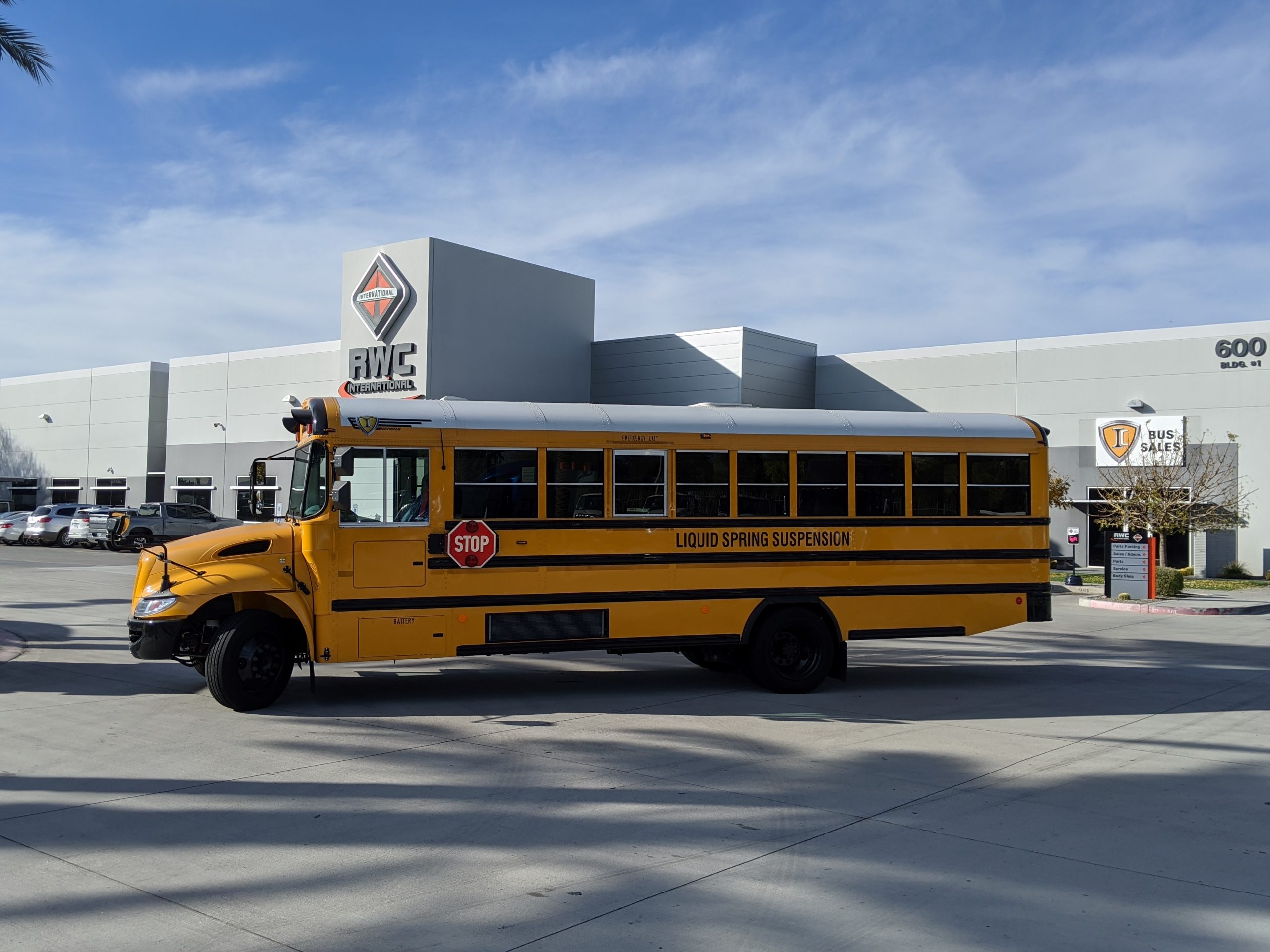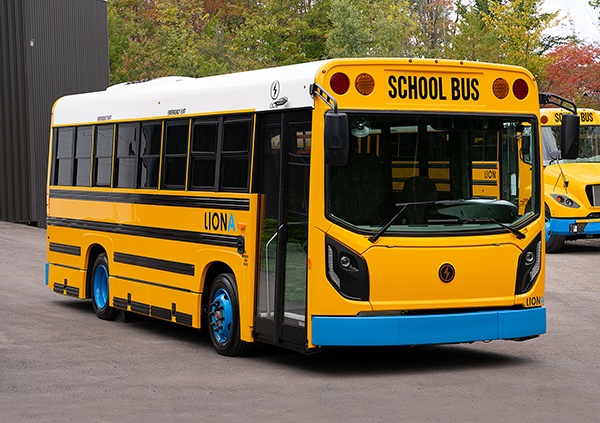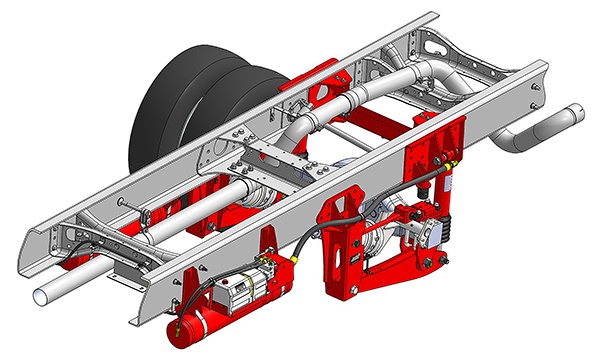
Using a compressible liquid adaptive suspension system, students, aides, and drivers experience smooth rides and improved handling
By Richard G. Tackett
After LiquidSpring’s entry into the school bus industry, the company’s “smart” suspension technology might be a game-changer – much as it has been for transit buses, RVs, and emergency vehicles.
With the proprietary Compressible Liquid Adaptive Suspension System (CLASS) recently approved as an upgrade option for IC Bus’ Type C offerings, and as standard for Type A buses by Lion Electric, the intelligent suspension is now more widely available than ever for school bus deployments. In addition to being offered on Endera bus models, the company also recently completed Federal Motor Vehicle Safety Standard (FMVSS) No. 136 testing for electronic stability control (ESC) on vehicles with a GVWR greater than 26,000 pounds.
CLASS
LiquidSpring’s CLASS suspension is tailored for school buses, shuttle buses, ambulances, RVs, and military vehicles. It is an intelligent suspension system, featuring an on-board processor which automatically adjusts the spring and damping rates based on detected terrain.
 The system keeps the ride soft and smooth over rough roads, then automatically stiffens on sharp turns, cornering, and emergency maneuvers. Drivers can adjust ride modes, alter suspension heights, and respond to system issues via an interactive driver interface.
The system keeps the ride soft and smooth over rough roads, then automatically stiffens on sharp turns, cornering, and emergency maneuvers. Drivers can adjust ride modes, alter suspension heights, and respond to system issues via an interactive driver interface.
In addition to the improvements in ride quality, handling, and control provided by a LiquidSpring Smart Suspension over traditional leaf, coil-over or air spring modifications, the system uses an onboard CPU and microprocessor to constantly monitor and optimize the vehicle’s ride based on speed, steering direction, braking level, and the motion at each wheel.
“We produce an active suspension system that utilizes a compressible fluid as the spring element,” said David Nagreski, director of advanced engineering for LiquidSpring. “By varying the amount of fluid that is engaged, we can change the spring rate and pulse between two ride types – softer than standard or stiffer if the route requires more control. We like to say that it provides a ‘luxury car’ ride with ‘sports car’ handling, but in a bus.”
The system differs from leaf-spring suspensions, where Nagreski said buses sacrifice ride in favor of handling, and air suspensions which he said offer a smoother ride but handle more poorly.
“The idea behind the LiquidSpring suspension is to only provide roll stiffness when it is needed,” he said.
While this technology represents a slightly higher price point than leaf-spring and air-ride suspensions, Nagreski said the system is comparable to an air-ride in terms of maintenance intervals. However, unlike an air-ride suspension, the CLASS suspension has no air bags or lines which need to be monitored. The suspension’s hydraulic systems should be monitored, but no refills or system replacements are required in a vehicle’s lifetime. In areas with poorer road conditions, the LiquidSpring suspension may offer even more maintenance savings over other suspensions.
“We have found that this suspension technology reduces 45 percent of vibrations from road to bus,” said Travis Ward, national bus sales at LiquidSpring. “Many maintenance issues – such as air conditioning, body panels, airbags, compressors, dryers, moisture separators, and more – are no longer a problem because of vibration reduction.”

FMVSS No. 136
FMVSS No. 136 is a rule established by the National Highway Traffic Safety Administration (NHTSA) requiring ESC on buses and truck trailers exceeding 26,000 pounds:
ESC systems in truck tractors and large buses are designed to reduce untripped rollovers and mitigate severe understeer or oversteer conditions that lead to loss of control by using automatic computer-controlled braking and reducing engine torque output.
While the standard largely applies to commercial buses in the United States, it still represents a marked safety improvement and LiquidSpring completed the required testing earlier this year.
Ward added that completing FMVSS No. 136 testing was also a critical step to partnering with Navistar, manufacturers of IC Bus.
“IC Bus was very supportive of completing the testing,” Ward said. “They like the way our suspension performs over their vehicles without FMVSS No. 136 certification. We have heard nothing but praise from drivers on test tracks, commenting about the improvements over a normal school bus ride.”

School Bus OEM Partnerships
LiquidSpring has partnered with IC Bus to offer the CLASS suspension system as an approved upgrade option for school
bus offerings.
Because many districts are not authorized to purchase aftermarket componentry or parts, the suspension is installed at a Navistar Mod Center prior to leaving factory production.
“At the IC Bus factory, the bus comes off the line with a temporary suspension before it is sent to the Mod Center,” Nagreski said.
Before leaving the factory line, IC Bus engineers pre-drill the vehicle, install a wiring harness, and prepare the bus for a LiquidSpring suspension.
“We’ve worked out what works best for the various different vehicle configurations with compartments, where we mount the componentry, and so forth,” Nagreski said. “When that is finished, the bus goes back to the line to be completed with a LiquidSpring suspension. We have a great working relationship with Navistar, sharing information and ensuring that our products work well with each other.”
RWC Group, a truck and bus dealer representing IC Bus in Arizona, Washington, and Alaska, was an early proponent for LiquidSpring technology on school buses. Tom Hartman, general manager for bus sales at RWC, said that districts, charter schools, and private schools are becoming increasingly sensitive to bus vibrations affecting special needs children.
This concern led to RWC testing LiquidSpring suspensions in 2019, and Hartman said the ride was exceptional.
“We have received a lot of good feedback from school districts,” Hartman said. “After we sold the bus to a school on a Native-American reservation here in Arizona – where the roads can be very rough for school buses – they tell us that they love it. The ride is better, and the driver can make adjustments based on the road they’re driving over.”
RWC has ordered five LiquidSpring-equipped buses by IC, and Hartman said he plans to order another demo bus now that the effects of COVID-19 on the industry are beginning to subside.
“I am excited to order another demo and start promoting it again,” he said. “I believe these are suspensions which we will continue to utilize for more school districts going forward.”
In addition to the availability on IC Bus models, the Lion Electric Company is currently building LionA school buses with LiquidSpring installed as the standard suspension system.
“Although the LionC bus is Lion’s initial offering to the market, we have been discussing other models – because of what this suspension does for ride stability and handling,” Ward said. “It is available to go on almost any Type-A school bus available today.”
The all-electric configuration of these vehicles does not affect a CLASS suspension installation, Ward said, but it can affect power drain.
“All-electric buses have huge power consumption,” he said. “A LiquidSpring suspension does not have a huge power draw opposed to a compressor-driven system. That can make a huge difference in battery power and longevity for districts.”
People First
“School bus drivers, students, and aides are the biggest beneficiaries of the technology,” Ward said. Drivers will experience less fatigue and a safer drive, while students are more secure in their seats while traveling on bumpy roads or cornering.
“For many special-needs students and aides, it is so important to have a smooth ride,” Ward continued. “It can make a night-and-day difference, not only for them but for drivers as well.”


